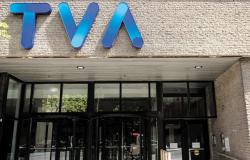In an increasingly divisive political sphere, Becka Robbins focuses on what she knows best: books.
Operating out of a small room at Fabulosa Books in San Francisco’s Castro District, one of the oldest gay neighborhoods in the United States, Robbins uses donations from her customers to ship boxes of books across the country to groups that want them.
In an effort she calls “Books Not Bans,” she’s sending out titles about queer history, sexuality, romance and more — many of which are increasingly hard to find in the face of a rapidly growing movement by advocacy groups and conservative lawmakers to ban them from public schools and libraries.
“The book bans are horrible, the attempts to erase them,” Robbins said. She wondered how she could get these books into the hands of the people who need them most.
Starting last May, she began fundraising and looking for recipients. Her books have been sent to places like a pride center in West Texas and an LGBTQ-friendly high school in Alabama.
Customers are especially enthusiastic about helping Becka Robbins send books to states like Florida, Texas and Oklahoma, often writing notes of support to include in the packages. More than 40% of all book bans between July 2022 and June 2023 occurred in Florida, more than in any other state. Behind Florida are Texas and Missouri, according to a report from PEN America, a nonprofit literature advocacy group.
Bans and attempted bans at record levels
Book bans and attempted bans have reached record levels, according to the American Library Association. And the efforts now extend to public libraries as well as school libraries. Because the totals are based on media reports and reports submitted by librarians, the association considers these figures to be snapshots, with many bans going unrecorded.
PEN America’s report says that 30% of bans include characters of color or discuss race and racism, and 30% feature LGBTQ+ characters or themes.
The most prominent challenges often come from conservative organizations, such as Moms for Liberty, which have organized nationwide banning efforts and called for greater parental control over books available to children.
Moms for Liberty is not anti-LGBTQ+, co-founder Tiffany Justice told The Associated Press. But about 38% of the book challenges “directly coming” from the group have LGBTQ+ themes, according to the library association’s Office for Intellectual Freedom. Justice said Moms for Liberty challenges books that are sexually explicit, not because they deal with LGBTQ+ topics.
Among the books at the top of the banned lists are Maia Kobabe’s “Gender Queer,” George Johnson’s “All Boys Aren’t Blue” and Nobel Prize winner Toni Morrison’s “The Bluest Eye.”
Ms Robbins argued that it was more important than ever to make these types of books accessible to everyone.
“Fiction teaches us to dream,” recalled Becka Robbins. “It teaches us to connect with people who are not like us, it teaches us to listen and value.”
So far, she has sent 740 books, with each box worth between US$300 and US$400, depending on the titles.
At the new Rose Dynasty Center in Lakeland, Fla., books donated by Fabulosa are already on the shelves, said Jason DeShazo, a drag queen known as Momma Ashley Rose who runs the LGBTQ+ community center.
Jason DeShazo is a family drag performer and longtime drag storytime host to promote literacy. He uses puppets to address themes of kindness, fighting bullies, and giving back to the community.
Mr. DeShazo hopes to provide a safe space for events, support groups and health clinics, and build a library of banned books.
“I don’t think a person of color should have to search so hard for a great book about the history of what our black community has been through,” Jason DeShazo said. “Or for someone who is gay, to find a book that represents them.”
Robbins’s favorite books to send are queer young adult romances, a genre that’s growing rapidly as conversations about LGBTQ+ issues have become much more mainstream than they were a decade ago.
“The characters are like regular kids – regular people who are also queer, but they can also fall in love and be happy,” Robbins said.
_____
Ding wrote from Los Angeles.






